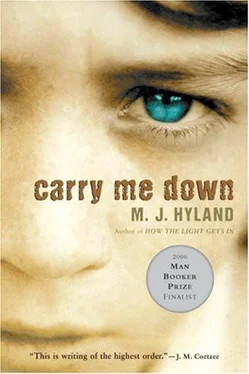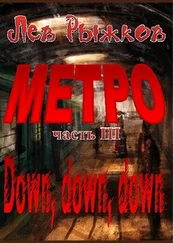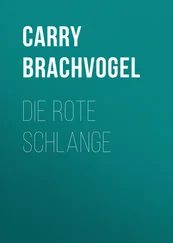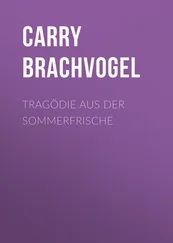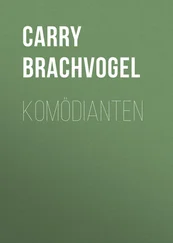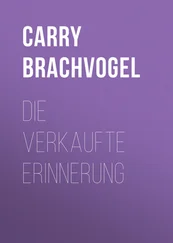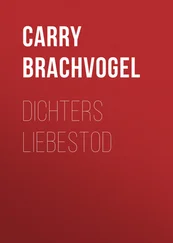After the film, I decide to see if I can find Mr Roche’s telephone number. I remember that the headmaster said that Mr Roche was from Dublin, so I look in the Dublin directory. There are too many people called Roche and I don’t know his first name. I find the number for Gorey National School instead. I don’t expect anybody to be at the school of a Saturday, but a woman answers the phone after two rings.
I tell her who I am, an ex-pupil of Mr Roche’s and that I’d like to speak to him.
‘You’re Helen Egan’s boy,’ she says.
‘Yes, I am.’
She gives me Mr Roche’s number in Gorey. When I thank her, she says, ‘How is your mammy?’
‘She’s grand,’ I say.
‘You’re lucky you caught me here. I was just about to lock up. Will you tell her I was asking after her?’
‘Yes, I will,’ I say. ‘I have to go now. Bye-bye.’
I hang up and take a few deep breaths before I dial the number.
When I hear his soft, slow voice, saying, ‘Hello, David Roche speaking’, I get nervous. My throat dries and my hand trembles.
I don’t intend to play a practical joke, but that’s what happens. ‘Hello,’ I say, ‘this is Mr Roche.’
He says, ‘ This is Mr Roche.’
I say, ‘I think I am a distant relative of yours and wonder if you might invite me to your abode for a cup of tea.’
He hangs up.
I don’t understand what I have done. I call again straight away. If I wait, I’ll lose my courage. I speak in a rush. ‘Hello Mr Roche. It’s John Egan, sir. I was in your class at Gorey National School.’
There is a long pause. I hear some papers rustling and then, when he finally speaks, he seems to have food in his mouth. ‘Oh, the boy who left in the dead of night?’
‘Yes,’ I say, pleased that he remembers. Perhaps things will work out between us after all. He will help me do what I need to do to become famous. He will help me get the attention of the Guinness Book . ‘We moved to Dublin. To Ballymun, sir.’
Another long pause, while my heart races.
‘Did you ring this number a few minutes ago?’ he asks.
‘No,’ I say. ‘No. I just called now. For the first time.’ This is a lie told badly.
‘Well, whoever it was sounded as if it could have been you.’
‘Well, it wasn’t, sir. It must have been somebody else. It must have been a coincidence.’
I notice the sensations caused by lying: what lying does to my temperature, my voice and my body. I notice that my left hand is in a fist but it is hard to know what my right hand might be doing if it were not occupied holding the telephone receiver. I also notice that I am speaking faster than usual.
‘You live in Ballymun now.’
I am not sure if this is a question or a statement. ‘Yes,’ I say. ‘It’s pretty good when you get used to it.’
He’s definitely eating. I wait for him to chew and swallow. ‘I’ll pray you never get used to it. I’ll pray you’ll leave the very first chance you get.’
‘Yes,’ I say, ‘that’s exactly right and …’
‘Well, young John, remember to be good and, more importantly, good luck.’
He hangs up.
I have never been on the phone with somebody who didn’t bother to say goodbye. I say goodbye to the beeping tone, and then I look around the living room, embarrassed.
I pace the living room floor behind the settee for a while and then I call him again. ‘Sir,’ I say. ‘It’s me again.’
‘Yes.’
‘I forgot to tell you that I have a gift.’
‘I don’t think there’s any need to be sending me a present.’
‘Not a present, sir. A gift. I’m gifted. I have a gift.’
He breathes heavily but doesn’t speak.
I wait.
‘What kind of gift?’
He sounds bored. I’m no longer sure that I should tell him. ‘I can’t say yet. But it’s a real gift and I was wondering if you could help with a letter I need to …’
‘Why mention this gift if you can’t tell me what it is?’
Why don’t I say what I set out to say? Why can’t I control what I say and how I say it? How can I have been thrown off course so easily? I hate myself.
‘Well, sir. I’m going to be famous one day. I think I’m a human lie detector. I’m pretty sure, but I need help with …’
He clears his throat. ‘Yes? Go on.’
I tell him about my father’s and grandmother’s lies. I tell him about The Gol of Seil, and the books I have read.
‘Tell me more,’ he says. ‘Explain it to me.’
I have a chance now to prove that I have a gift and to show off some of what I have learnt. ‘I have an instinct and I know that lying stirs up emotions that are involuntary and I know these emotions can’t be completely hidden.’
I continue. He has stopped eating.
‘And I can see these emotions in people’s faces and in what they do with their bodies, how they fidget with their hands, and other things. I can even tell when a good liar is lying because “one of the most important clues to a deception is the mismatch between what the person is saying and what his face and body are doing”.’
‘That’s quite a mouthful. You’ve obviously done your homework. But how do you know these sensations of yours are not simply feelings like hurt and shame? Emotions you feel when you believe somebody close to you is lying?’
‘Because there is proof. I tested it on Brendan and I’ve made notes in my Log of Lies.
He laughs. ‘As long as this goes no further,’ he says, ‘I am happy to tell you that Brendan is one of the worst young liars I have ever encountered, both with respect to the number of lies he tells and their alarming lack of credibility.’
‘Oh,’ I say. ‘But …’ I’m angry and short of breath, as though I’ve been running. I make sure that I don’t sound angry.
He begins to eat again. ‘You might want to test this gift of yours on some friends who are more practised liars.’
‘Well,’ I say, ‘I met this gang. I could practise on them. Maybe next time I could …’
He coughs loudly to interrupt me. Is this a trick for getting in the way of a boring speech? Does he mean to cut me off? If I don’t do something to stop it, I’ll become too angry to speak. I take a deep breath and count to ten.
‘Well, John, I’m intrigued. If you still have this gift when you finish your Leaving, please feel free to contact me.’
‘All right, sir.’
‘I do mean that, John. I’d like you to have something that will get you out of that wretched place.’
He speaks this last sentence with a warmth that is so sudden, and so strong, I feel the urge to cry, to laugh, to clap my hands. He doesn’t hate me. ‘Me too,’ I say. ‘I hope so too.’
I go to the dresser and get the permanent black marker Mammy uses for writing my name on the labels of my new clothes. I take my jersey off and write Mr Roche’s phone number on the inside of my left arm, just under my armpit; if the number fades when I wash it, I’ll write over it again. I will keep the number with me every day.
It’s the middle of the same night and my father stands by the bedroom door and whispers my name. I pretend not to hear him but he tiptoes over to the bed and shakes my shoulder. ‘Get up,’ he says. ‘And don’t wake your mother.’
He is wearing the same dirty yellow Aran jumper he has been wearing nearly every day since we moved to Ballymun.
‘I’m too sleepy.’
‘Get up,’ he says. ‘I’ve something to tell you.’
I put my dressing gown on and go with him into the small bedroom that used to be mine. The smell of the rubbish chute is strong, and it crunches and churns.
It’s 3.15 am and the clock on the wall beside the bed looks strange, with both hands together, back to back, thick and black.
Читать дальше
